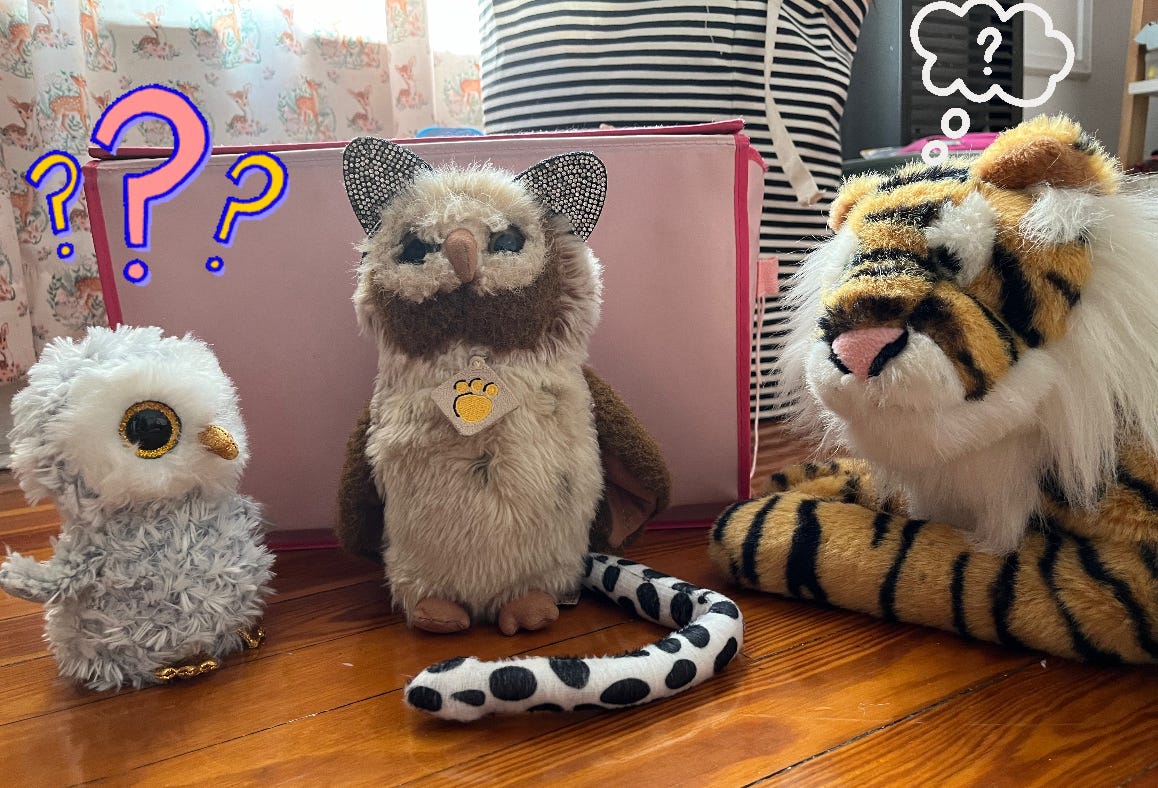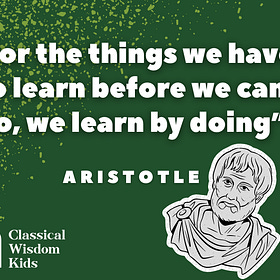Aristotle GAMES
Aristotle Goes to the Zoo, Polymath Charades, Aristotle Tag and Aristotle Draws a Picture
Dear Classical KIDS,
This month we have been studying Aristotle - the great ancient Greek polymath who famously began or contributed greatly to so many fields of study, such as politics, ethics, logic, rhetoric as well as geology, biology, zoology… to name just a few.
If you want a quick refresher on Aristotle, you can learn about him here:
Who Was Aristotle?
Dear Classical Wisdom Kids, First, a quick clarification. I’ve had a few readers write in a bit confused to what belongs to what in the growing world of Classical Wisdom. Fair dinkum as they say ‘Down Under’. About a year ago we launched Classical Wisdom KIDS, to help bring ancient wisdom to future minds. The thing is a lot of the ideas, history and conc…
Today, however, we are going to focus on one awesome aspect of Aristotle, his contributions to zoology, with games!
Remember how Aristotle conducted extensive scientific research during his time on the island of Lesbos? He studied and made LOTS of notes on a wide variety of animal species, writing detailed observations of their behaviors, bodies, and habitats.
He was specifically interested in marine biology (the study of animals in the water) and classified many different species of fish, cephalopods, and crustaceans.
[This is a great opportunity to introduce these awesome animals to kids if they don’t know them.]
With all of Aristotle’s notes he wrote one of his most famous works, "Historia Animalium" (The History of Animals), in which he documented the characteristics and behaviors of hundreds of animal species.
Aristotle's time on Lesbos allowed him to collect a wealth of empirical data that he later used in his philosophical and scientific teachings. His meticulous observations laid the groundwork for the scientific method and contributed significantly to our understanding of the natural world.
[Ask your kids what they think empirical data is… How can we study something meticulously? And what is the the scientific method? This is a great reminder how philosophy and science can be one and the same!]
So yeah, super awesome and super important! Now, how can we teach kiddos these great lessons? With games of course!
Classical KIDS members, please enjoy these fun activities to reinforce how we categorize, different types of animals, encouraging multi-disciplinary thinking and growth, as well as research and art!
Check out: Aristotle Goes to the Zoo, Polymath Charades, Aristotle Tag, Aristotle Divides and Aristotle Draws a Picture, below.
Let us know which was your favorite!
All the best,
Anya Leonard
Founder and Director
Classical Wisdom and Classical Wisdom Kids
P.S. Not a member? Subscribe today and get FULL access to all our games, activities and more... PLUS help support the project and bring ancient wisdom to future minds
ARISTOTLE GAMES
Aristotle Goes to the Zoo
As we learned earlier, Aristotle is considered to be the father of Zoology. Aristotle spent hours observing and categorizing the natural world.
Keeping this cool Aristotle practice in mind… it’s time to grab a few friends and go to the ZOO!
This is a group game of wild observation.
Designate an area of your space to serve as the zoo enclosure. Choose one player to play the part of Aristotle. All other players will position themselves inside the zoo enclosure.
The players inside the enclosure will either choose an animal suggestion card (you can make these cards prior), or secretly as a group decide upon one animal (Tiger, kangaroo…) to act out. Do NOT let Aristotle hear! If the group has chosen the tiger - all players will pretend to be a tiger.

Aristotle will view the animals in their enclosure, and make notes of all their similarities. You may set a timer for a few minutes. Once the timer rings, ask Aristotle how many similarities they were able to observe. Based on their observations, have Aristotle guess the animal.
A second variation of the game:
Keep reading with a 7-day free trial
Subscribe to Classical KIDS to keep reading this post and get 7 days of free access to the full post archives.




